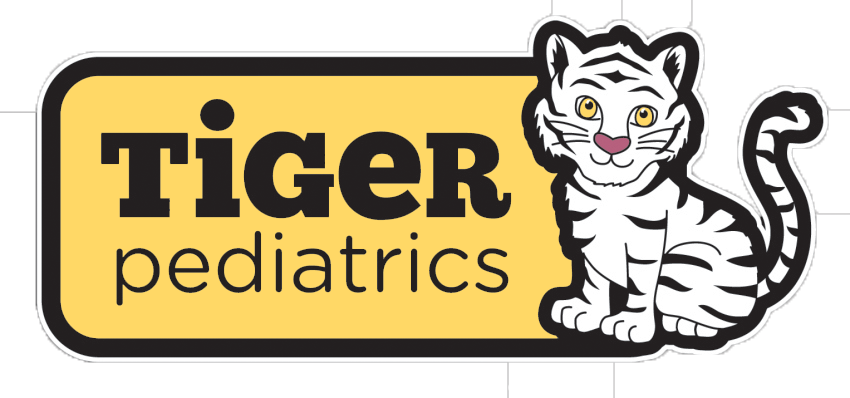Newborn 101 – Post-Delivery Newborn Care
Your new baby has finally arrived, and now it’s time to give them the best start to life possible. From the much-anticipated snuggle time to tests, procedures, and vaccinations, here is a rundown of what to expect before you leave the hospital.
What Happens To Your Baby Right After Birth?
Your baby takes their first breath within a few moments of delivery, filling their lungs with air. Some babies cry during this time and others do not, so don’t worry! Crying does help clear fluid from the respiratory tract, so nurses will encourage the baby to cry and breathe by vigorously drying the baby and rubbing the baby’s body. One exception is if there is meconium (a green, sticky substance that’s baby fecal matter in-utero) in the amniotic fluid – then the doctor will want to suction the baby’s mouth before the first breath so it isn’t inhaled.
Cutting the Umbilical Cord
It is recommended by both the American College of Obstetricians and Gynecologists (ACOG) and the American Academy of Pediatrics (AAP) to wait anywhere from 30 to 60 seconds or until the cord stops pulsating, which usually happens within five minutes, before cutting the umbilical cord. This is because it boosts hemoglobin levels and iron stores in full-term infants, and increases circulation and red blood cells in preterm infants.
To cut the cord, a clamp is placed and then the cord is cut by a doctor or birthing partner. This leaves behind a stump that will dry up and fall off on its own after a couple of weeks. If you’re choosing to bank your child’s cord blood, the doctor will collect that at this point as well.
Skin-to-Skin Contact
Whether delivered vaginally or by Cesarean section, it is recommended that your baby be placed on your bare chest as soon as possible. Soon after birth your baby will be naturally awake and alert, which makes it a great time to bond. Skin-to-skin contact also offers a variety of health benefits including temperature regulation for your baby, less crying overall, more stable heartbeat and breathing, increased blood oxygen levels, more successful initiation of breastfeeding, decreased stress, and increased oxytocin levels (which can aid in breastfeeding and bonding).
First Nursing Session
If the mother is choosing to breastfeed, this feeding will often happen in the first hour after birth. After latching on to the breast, baby will initially receive colostrum, a thick fluid that’s rich in immunoglobulins and antibodies. Colostrum helps baby build their immune system and it’s the only food a newborn will need for the next few days until the mother’s milk comes in fully, usually two to five days after birth.
Procedures for Your Newborn Baby
During your hospital stay, the baby’s vital signs will be examined periodically. As soon as the delivery approaches, the nurse will call for additional staff to manage the baby’s transition. Referred to as NRPs (neonatal resuscitative providers), these personnel may be doctors, nurses, or medical assistants, who all have special training in the initial evaluation of and resuscitation of newborns.
Weighing and Measuring
Soon after birth, your baby’s length and head circumference will be measured. The weight will also be taken and monitored for the first few days and beyond.
Vitamin K Injection
Babies are commonly born with low levels of vitamin K, which aids in blood clotting, so they will be given a vitamin K shot to prevent potentially dangerous bleeding.
Eye Protection Drops and Ointment
Antibiotic drops are placed in baby’s eyes to help prevent infections and protect them against harmful bacteria they may have been exposed to in the birth canal.
Hepatitis B vaccination
Sometimes this vaccination is administered at the baby’s first visit to the pediatrician, but usually this happens before you ever leave the hospital.
Tests for Your Newborn Baby
It is important to quickly assess your baby and identify any diseases or abnormalities. The earlier any of these conditions are identified, the better doctors are able to treat and prevent further progression.
Heel Prick Blood Draw
Before the hospital discharges you, your child will have a heel prick to test for a range of over 65 different disorders, including phenylketonuria (PKU), genetic diseases, and other conditions.
Bilirubin Test
This test detects liver abnormalities and only takes seconds to undergo. A monitor is placed on the baby’s forehead and displays a number representing the bilirubin level. This number is used to determine if your baby is at risk for jaundice, a liver condition that causes yellowing of a newborn baby’s skin and eyes which is common in preterm and term babies.
Hearing Test
This simple test is completely painless for your baby. Special headphones are placed on the baby’s ears that release sound and measure the baby’s response to the sounds. If the test detects a low response, the hearing screen will be repeated. If necessary, you will be referred to a hearing specialist.
Circumcision (Optional)
If you want your baby boy to be circumcised, this will happen during their hospital stay. Hospital staff will instruct you on at-home care for proper healing.
Learn More About Newborn Care
If you have questions about newborn care or prenatal and postnatal consultation, contact us at 573-777-7627. The Tiger Pediatrics team is here to provide the education and support necessary for new and growing families.

